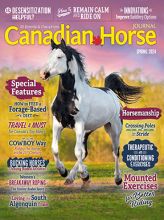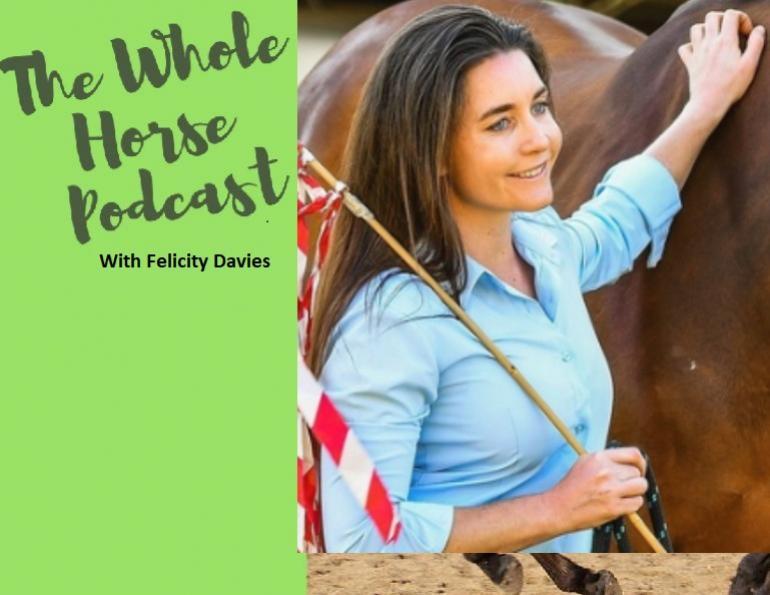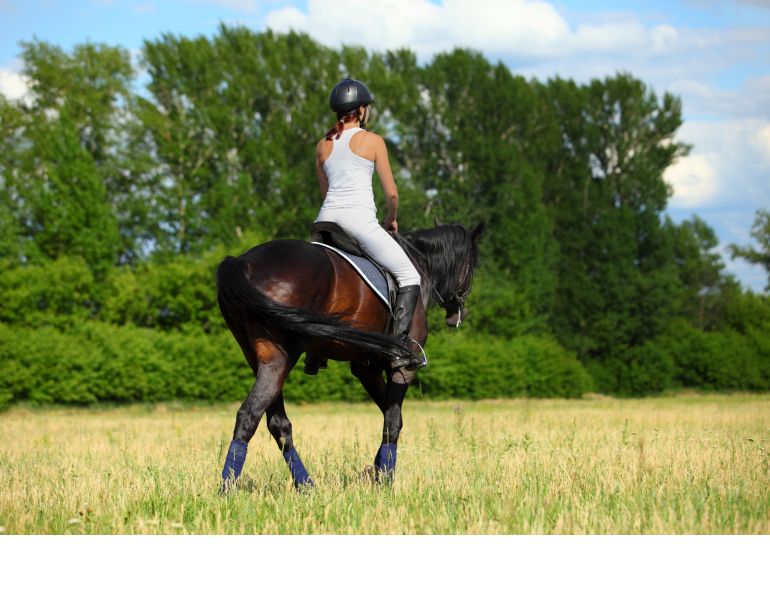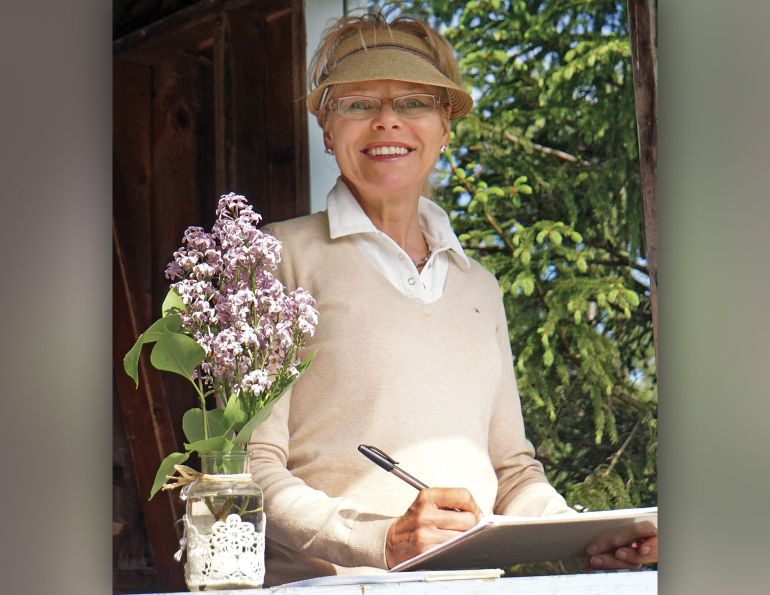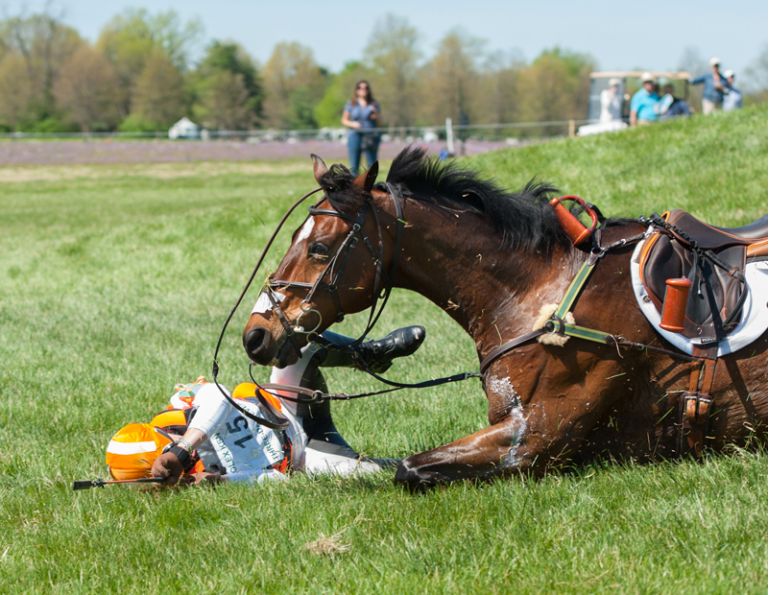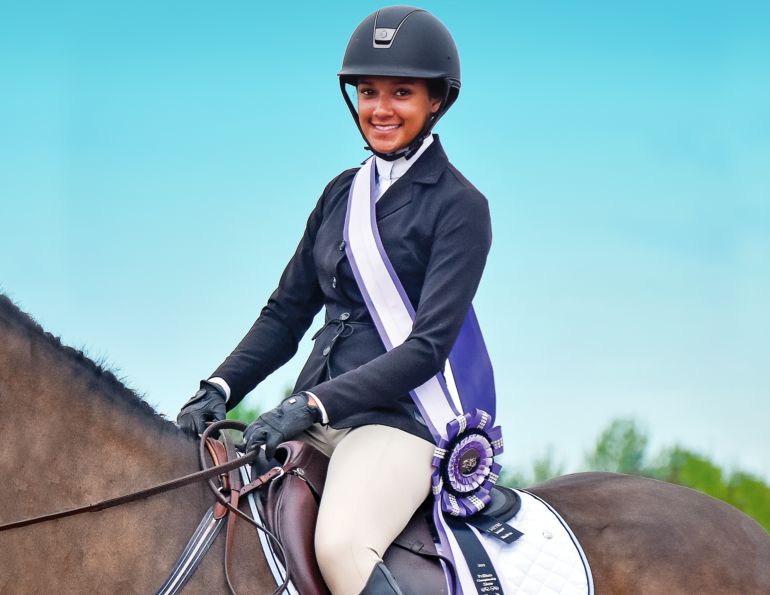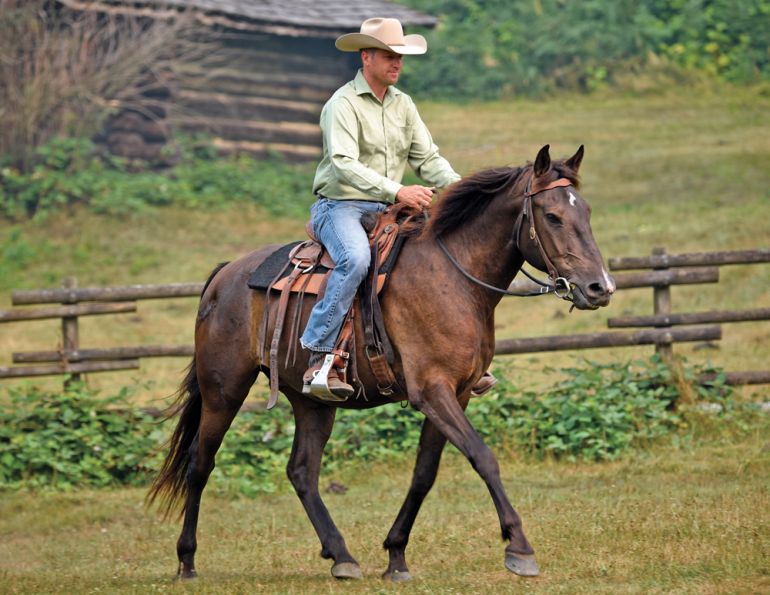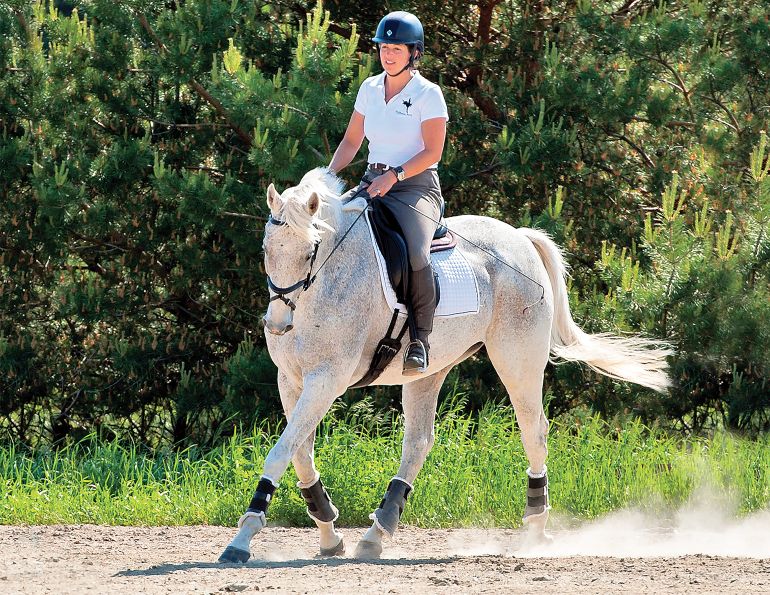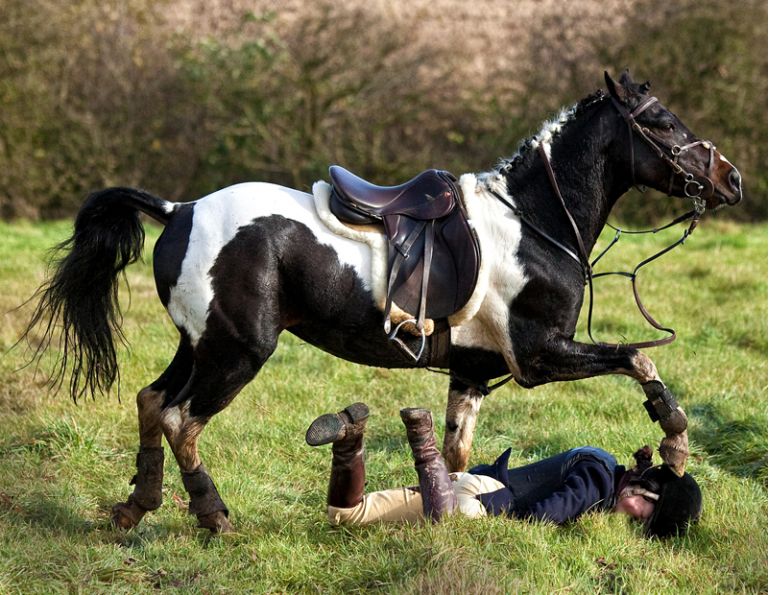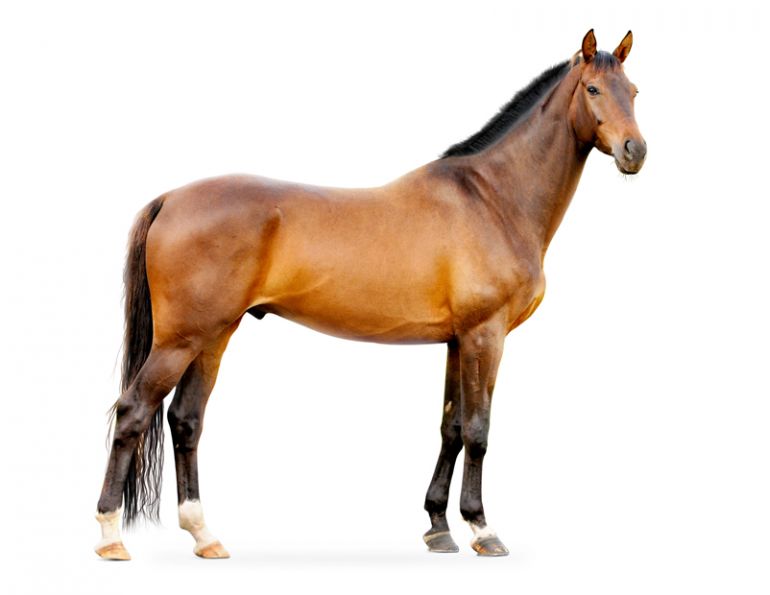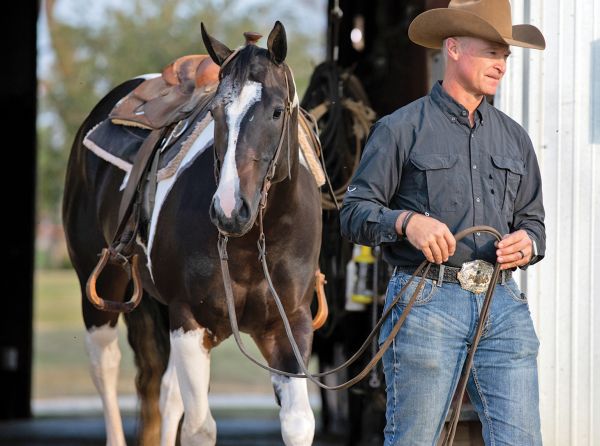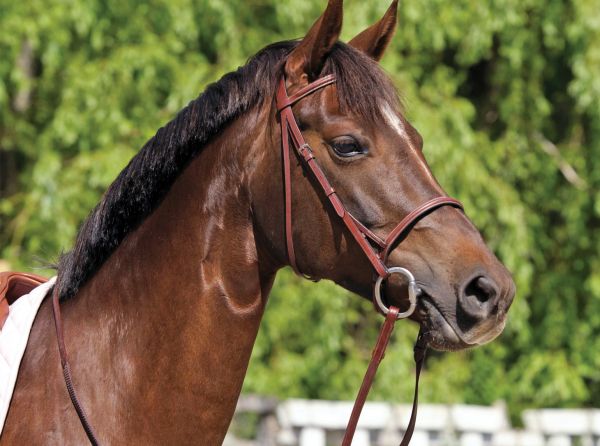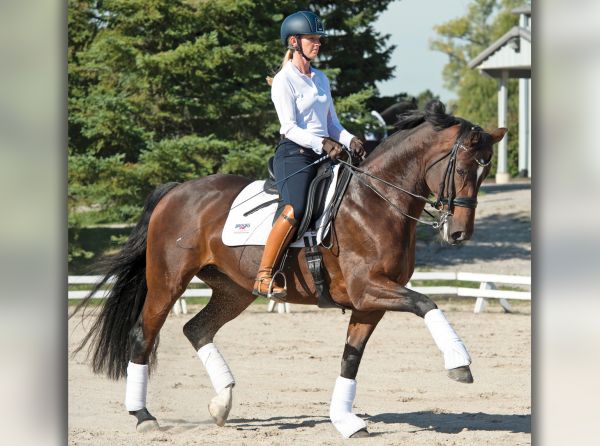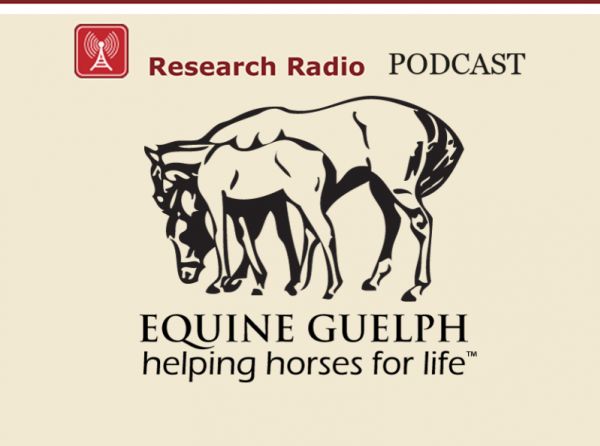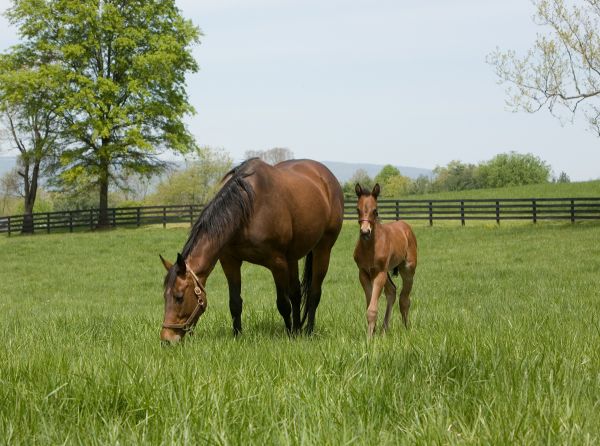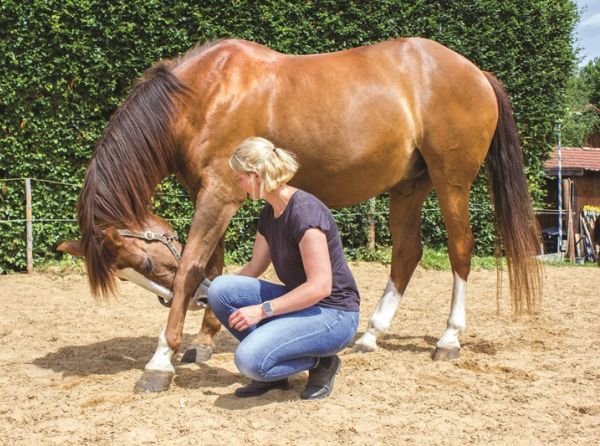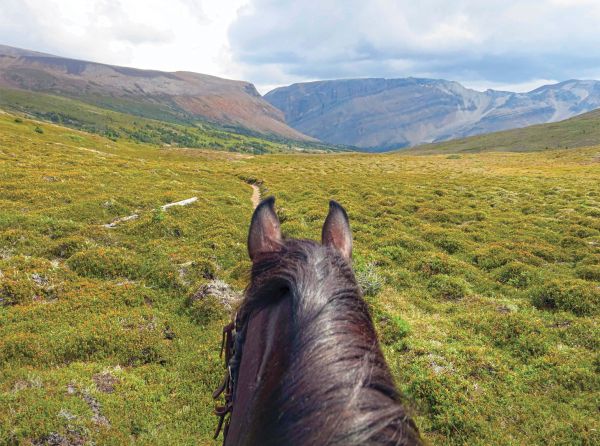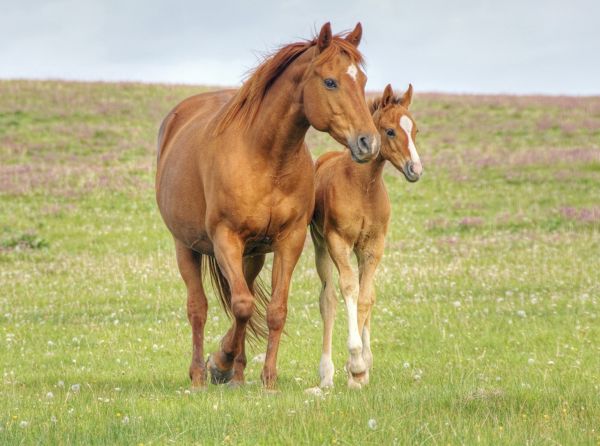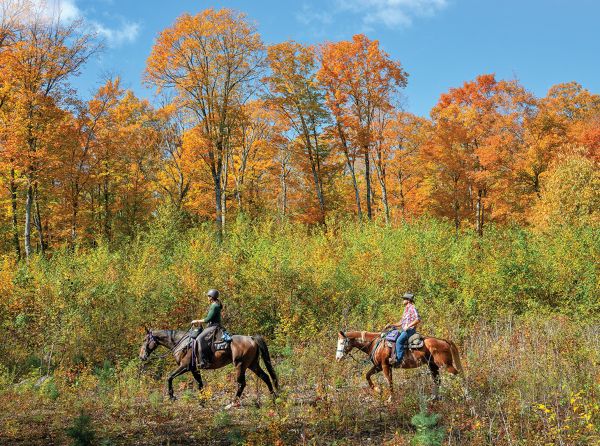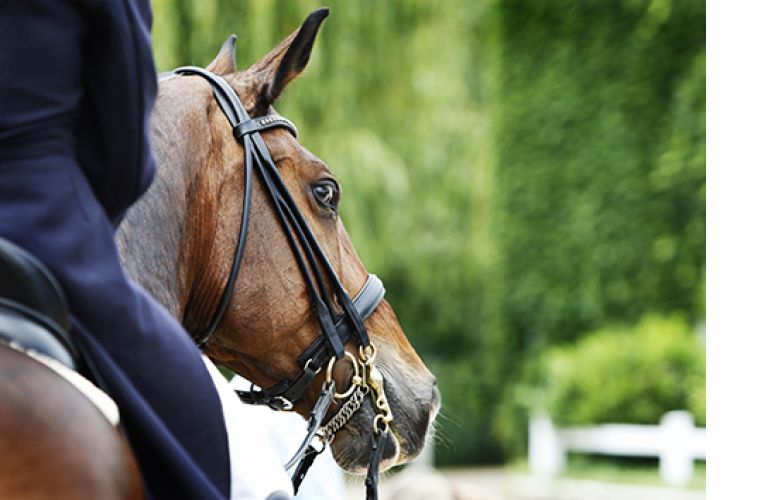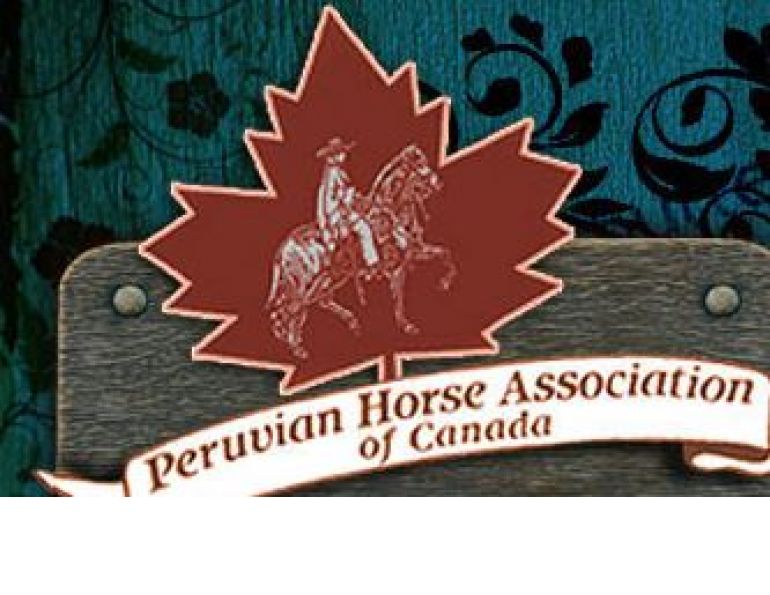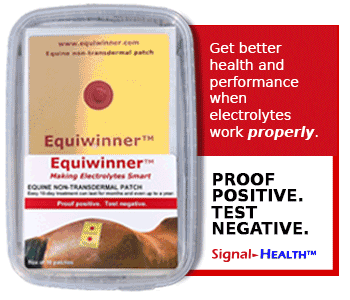By Dr. Kirby Penttila
When you have finally found the perfect horse to take you to the winner’s circle, it’s tough to realize that he or she might be getting old. Many horses are now competing well into their late teens and early twenties, especially in certain disciplines such as dressage or show jumping where it takes many years of training to reach an elite level of competition. However, from a veterinary perspective, horses are considered geriatric as they reach the age of 15 to 20 years, which is when their physiological functions start to decline. The management of these horses becomes crucial to keep them competing at their best.
We have a lot to offer the aged athletic equine these days with all of the advances in diagnostics, therapy, and medications that have come about over the years. For the most part, all of the same considerations that you would think of for maintaining a young performance horse are still relevant to our senior performance horses, with a few additional factors that should be considered.

American Richard Spooner is known for keeping his senior show jumpers sound and at the top of their game. His Hanoverian gelding, Robinson, competed until he was 19 years old. The Holsteiner gelding, Cristallo, was still in top form when he retired at age 20 this year. Cristallo is shown competing as a 10-year-old at the 2008 Spruce Meadows Masters. He and Robinson, now 30, are now enjoying their golden years at the Spooner farm in California. Photo: Robin Duncan Photography
Fitness and Conditioning
As any human athlete will confirm, the importance of a good fitness and conditioning program cannot be overstressed. This is especially true for horses who are getting older because the time it takes to get them fit and in shape is longer than it is for young horses, and older horses are more prone to injuries if they are not fit when they compete. Aging horses are prone to losing muscle mass and to muscle stiffness. They also have cartilage that is becoming stiffer and more brittle, making it more prone to damage during exercise.
The goal of any conditioning program is to stimulate adaptations within your horse’s body systems to improve performance while minimizing the risk of injury. Your horse needs to regularly perform the type of activity that will be performed in competition, and at an intensity that will induce the physiological changes necessary to permit optimal performance. To reach this goal, careful thought should be put into designing exercise sessions and rest periods to ensure that they are sufficient and balanced. This typically means that the horse needs a period of about 90 days to get back into performance shape after being idle for any length of time. Maintenance of condition usually means consistent riding five days per week.

Big Ben, the Belgian Warmblood gelding partnered with Ian Millar, was one of the greatest show jumping horses in the world. After competing successfully into his senior years, his long and illustrious career was crowned at age 18 with a nation-wide “Big Ben Retirement Tour” in 1994, giving Canadian fans a chance to say goodbye. Photo: Clix Photography
Health Care
Senior performance horses are susceptible to most of the same ailments as younger performance horses, but there are three areas in particular where senior horses tend to have more problems than young horses.
Respiratory Health
Exposure to airway irritants, such as dust, molds, and pollens, is a known risk factor for the development of respiratory disease. Unfortunately, exposure to these agents has a cumulative effect over the lifetime of the horse and can lead to small airway disease. This will commonly show up as a cough, but in other horses, the first thing the owner notices is simply poor performance. In aged horses, the most common respiratory disorder is Recurrent Airway Obstruction (RAO, otherwise known as heaves). RAO develops after repeated bouts of small airway inflammation as a result of exposure to airway irritants that lead to progressive airway damage and remodelling. The result is scarring in the small airways that makes it difficult for the horse to move air and secretions out of the lungs. RAO is typically diagnosed with endoscopy and/or a bronchoalveolar lavage (BAL). Treatment is targeted at treating the inflammation with either systemic or inhaled corticosteroids, but a change in management to limit exposure to irritants is integral to controlling the disease.
Related: The Healthy Senior Horse
Cardiac Disorders
Age is a risk factor for the development of heart murmurs in horses. Up to 20 to 30 percent of performance horses develop a heart murmur as they age. Most murmurs are a result of insufficiencies of the heart valves on the left side of the heart – the aortic and mitral valves. While murmurs don’t tend to affect performance in young horses, in aged equine athletes there is a risk of progression to a point such that cardiac output (the amount of blood pumped by the heart per minute) is affected. In some cases, this can lead to congestive heart failure, which both limits performance and is an overall health concern.
Metabolic Health
Aged horses are also more prone to endocrine disease than young horses. Pituitary pars intermedia dysfunction (PPID, also known as Cushing’s disease) is the most common endocrine disease in our horse population today. It is most commonly diagnosed in horses 18 to 23 years of age. Horses affected with this disorder may show one or more of the following signs: lethargy, loss of interest in performance, loss of muscle mass, increased drinking and urination, or laminitis. The classic sign of this disorder is an abnormally long, curly hair coat or a failure to shed out in the spring, but this is not always seen in the early stages. These signs are a result of abnormal production of hormones by the pituitary gland in the brain, which affects the horse’s cortisol production. Diagnosis is generally possible with a blood test to determine the levels of insulin and ACTH in the bloodstream. Treatment is aimed at normalizing hormone levels with daily administration of the medication pergolide mesylate (Prascend®).

American Beezie Madden’s legendary show jumping partner, the Dutch Warmblood stallion Judgement ISF, retired from competition at age 18 in a ceremony held at the Spruce Meadows Masters in 2009. The senior superstar now enjoys a working retirement at Iron Spring Farm in Pennsylvania where he stands at stud. Photo: Robin Duncan Photography
Lameness and Joint Maintenance
Lameness is a word that most horse people loathe, especially competitors. Unfortunately, as performance horses age and the years of athletic activity culminate, they do tend to become more susceptible to injury. The quicker a lameness concern is addressed, the less likely it will become a career-ending problem. The key with any lameness issue is in determining what is causing the lameness. An accurate diagnosis allows for the most appropriate treatment. In recent years, the integration of wireless inertial motion sensing gait analysis in the form of the Lameness Locator® has augmented the subjective examination and allowed for more accurate diagnosis and monitoring of lameness in horses. In general, a lameness examination should not be synonymous with joint injections.

A thorough lameness exam can help to pinpoint the source of your horse’s pain and discomfort, allowing formulation of the most appropriate treatment plan to keep them competing for as long as possible. Photo: Kirby Penttila, DVM

Joint injections are often necessary to help manage the pain and inflammation associated with osteoarthritis in senior performance horses. Photo: Kirby Penttila, DVM
If and when lameness occurs, it is best if the horse is seen by a veterinarian without delay. A prompt examination can save you time, money, and frustration by diagnosing and treating the problem immediately, which could prevent further damage. The goal of early examinations is to keep small problems from becoming big ones. As competitors, we often think of lameness as coming from the legs or feet, but it can certainly also be due to pain in the neck, withers, shoulders, back, pelvis, or hips.
The most common musculoskeletal disorder in aged equine athletes is osteoarthritis. Osteoarthritis is a disease of joints with many inciting causes, resulting in progressive degradation and destruction of articular cartilage, the thin layer of highly specialized connective tissue that lines the end of long bones where they join. Regardless of the cause, the result is a hot, swollen, and painful joint, and a lame horse. This inflammation in the joint results in the production of harmful, degradative enzymes that perpetuate the cycle of osteoarthritis. If left untreated, there is faster deterioration of the articular cartilage and the potential development of a severely arthritic joint that can be difficult to treat. The most commonly affected joints are the lower hock joints, the knee, the fetlock, and the stifle joints.
Early diagnosis can be difficult, given that radiographic changes often don’t show up until there has been irreparable harm to the joint. However, if your veterinarian examines the horse shortly after the injury, they can often gain more valuable clues that may indicate that a joint is involved (rather than weeks after the initial injury when most of the swelling, heat, and pain have resolved).
Related: Senior Horses Aging Gracefully
Osteoarthritis is a condition that is unfortunately incurable at this time, however, it is not unmanageable. Treatment will invariably be necessary at some point in the disease process to manage the pain and discomfort, control swelling and inflammation, maintain the function of the joint, limit progression of the disease, and prolong athletic function. In most cases, this involves a combination of anti-inflammatories, joint injections, systemic joint health medications, and nutraceuticals (supplements).
Podiatry
Paying attention to your horse’s feet is important at any age, but senior horses are at an increased risk of chronic laminitis, so it is essential to be even more diligent with our aging athlete’s feet. Shoeing survey radiographs are an excellent way to monitor the health of your horse’s feet and ensure that they are being trimmed and shod in the most appropriate manner.
Preventative Care
Vaccinations
Ensuring that performance horses are up-to-date on their vaccinations is important, but it is crucial to make sure that your senior performance horse is vaccinated due to the development of immunosenescence in aging horses. Immunosenescence refers to aging of the immune system that results in a declining ability of the horse to fight off infection. This is similar to elderly people in that it makes them more likely to become severely ill or die when they contract an infectious disease. Vaccination is a great means of protecting our geriatric horses from infectious disease.
Parasite Control
Declining immune system function in aging horses also makes them more prone to parasitism. Horses who once would have been able to fight off invading parasites may start to have trouble as they get older and their susceptibility to carrying a heavy worm burden increases. Having a good parasite control program based around worm detection through fecal egg counts and appropriate deworming is even more important in our senior performance horses than it is in young horses.
Dentistry
Regular dental exams by a qualified veterinarian throughout your horse’s life will go a long way to preventing problems with your horse’s teeth as they move into their golden years. Older horses become more prone to dental problems such as tooth loss, broken teeth, the development of diastemata (spaces between the horse’s cheek teeth that can trap feed and cause gum disease and tooth decay), uneven wear resulting in overgrowth of cheek teeth, and various infections. Unless more frequent examinations are recommended, annual dental exams should be integrated into all preventative care programs for aging performance horses.

Uneven wear of cheek teeth, such as the severe step shown in the above photo, is a relatively common finding in senior horses. Photo: Kirby Penttila, DVM
Nutrition
Nutrition is a critical component of the maintenance of all performance horses, but it becomes increasingly important as your horse gets older. Geriatric horses are more prone to losing muscle mass as they age. This means that they may have additional nutritional demands for protein and amino acids to encourage muscle development, and may require more calories to maintain their condition and energy while in training.
All of the factors mentioned in this article play a key role in keeping your senior performance horse feeling his or her very best. If there is a problem in any of these areas, there is a good chance there will be an impact on your horse’s performance. Knowing what to look for and involving your veterinarian in your horse’s care can go a long way toward keeping your horse performing well into his golden years.

This article was originally published in the Canadian Horse Journal Early Summer 2018 issue.
Main Photo: Shutterstock/Nicole Ciscato


